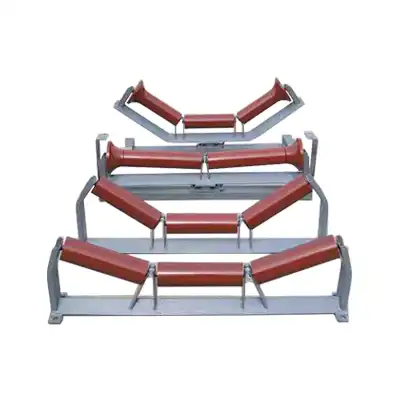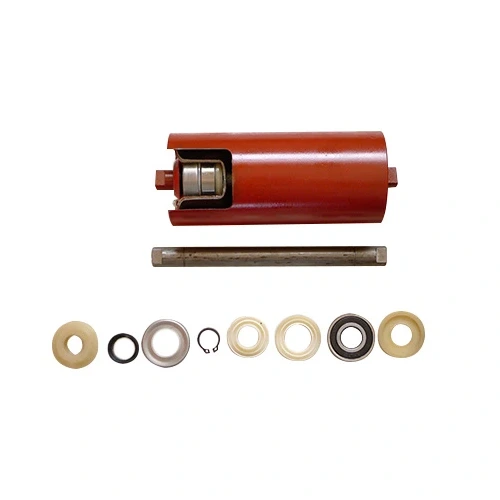- English
- French
- German
- Portuguese
- Spanish
- Russian
- Japanese
- Korean
- Arabic
- Greek
- German
- Turkish
- Italian
- Danish
- Romanian
- Indonesian
- Czech
- Afrikaans
- Swedish
- Polish
- Basque
- Catalan
- Esperanto
- Hindi
- Lao
- Albanian
- Amharic
- Armenian
- Azerbaijani
- Belarusian
- Bengali
- Bosnian
- Bulgarian
- Cebuano
- Chichewa
- Corsican
- Croatian
- Dutch
- Estonian
- Filipino
- Finnish
- Frisian
- Galician
- Georgian
- Gujarati
- Haitian
- Hausa
- Hawaiian
- Hebrew
- Hmong
- Hungarian
- Icelandic
- Igbo
- Javanese
- Kannada
- Kazakh
- Khmer
- Kurdish
- Kyrgyz
- Latin
- Latvian
- Lithuanian
- Luxembou..
- Macedonian
- Malagasy
- Malay
- Malayalam
- Maltese
- Maori
- Marathi
- Mongolian
- Burmese
- Nepali
- Norwegian
- Pashto
- Persian
- Punjabi
- Serbian
- Sesotho
- Sinhala
- Slovak
- Slovenian
- Somali
- Samoan
- Scots Gaelic
- Shona
- Sindhi
- Sundanese
- Swahili
- Tajik
- Tamil
- Telugu
- Thai
- Ukrainian
- Urdu
- Uzbek
- Vietnamese
- Welsh
- Xhosa
- Yiddish
- Yoruba
- Zulu
What Are the Advantages of PU Coat Rollers?
2024-07-19 08:18:12
Polyurethane (PU) coat rollers have gained significant traction in industrial applications due to their superior performance and durability compared to traditional rubber rollers. Businesses across various sectors are increasingly adopting PU rollers, as highlighted by experts in conveyor roller sales, to optimize operational efficiency and reduce maintenance costs. In this blog, we explore the distinct advantages of PU coat rollers, backed by insights from industry experts and credible sources.
How Do PU Rollers Compare to Rubber Rollers in Durability and Performance?
PU (Polyurethane) rollers have increasingly become the preferred choice over rubber rollers in various industrial applications due to their outstanding durability and superior performance characteristics. Unlike rubber, which can degrade over time when exposed to harsh conditions, PU rollers offer exceptional resistance to abrasion, impact, and chemicals. This resilience is crucial in environments such as mining, manufacturing, and food processing where equipment faces rigorous operational demands.
Experts specializing in conveyor roller sales highlight several key advantages of PU rollers. One significant benefit is their higher load-bearing capacity and ability to maintain dimensional stability even under heavy loads and frequent use. This durability translates into reduced downtime and maintenance costs, as PU rollers require fewer replacements compared to their rubber counterparts.
Furthermore, PU rollers are engineered with different hardness levels, providing businesses with flexibility to choose roller specifications that best suit their specific operational requirements. This versatility ensures optimal performance across diverse industries and applications. In contrast, rubber rollers typically offer limited hardness options and may require more frequent replacements, leading to increased operational disruptions and higher overall costs.
In addition to durability, PU rollers contribute to enhanced operational efficiency. They facilitate smoother operation of conveyor systems, which not only reduces noise levels but also improves workplace safety and comfort. Their low coefficient of friction minimizes energy consumption and wear on surrounding machinery components, further optimizing efficiency and extending the lifespan of equipment.
Overall, PU rollers represent a cost-effective investment for businesses aiming to enhance reliability and performance in industrial processes. Their durability, resistance to wear, and ability to customize specifications make them a preferred choice across industries seeking to minimize downtime, lower maintenance expenses, and improve overall operational efficiency. This positioning underscores PU rollers as a valuable asset in achieving sustainable operational excellence and competitive advantage in today's dynamic industrial landscape.
What Are the Key Benefits of PU Rollers for High-Abrasion Applications?
Polyurethane (PU) rollers are highly prized for their exceptional benefits in high-abrasion applications, where resilience and longevity are critical. Industries such as mining, construction, and material handling rely heavily on PU rollers, as emphasized by insights from experts in conveyor roller sales, to endure abrasive materials and harsh environmental conditions while maintaining optimal performance. Research underscores that PU rollers sustain their surface integrity and functional capabilities over prolonged periods, thereby reducing the frequency of maintenance interventions and associated downtime.
In high-abrasion environments, PU rollers, supported by industry findings from conveyor roller sales, exhibit superior wear resistance compared to conventional rubber rollers. This characteristic significantly extends the operational lifespan of conveyor systems and related equipment, translating into substantial cost savings for businesses by minimizing the need for frequent roller replacements and maintenance expenses. Moreover, PU rollers' resistance to chemicals and cleaning agents ensures compliance with stringent hygiene standards, particularly crucial in sectors like food processing where cleanliness is paramount.
Beyond durability and hygiene compliance, PU rollers enhance operational efficiency by promoting smoother material flow and reducing the likelihood of jams or disruptions in production lines. Their consistent performance under challenging conditions not only boosts overall productivity but also supports uninterrupted operations. Businesses investing in PU rollers, as highlighted by insights from conveyor roller sales, gain operational resilience and mitigate risks associated with equipment downtime, thereby reinforcing their competitive edge in dynamic industrial markets.
Furthermore, PU rollers contribute to sustainability initiatives by minimizing waste through prolonged use and reducing the environmental impact associated with frequent replacements. Their durability aligns with sustainable manufacturing practices, reflecting a commitment to resource efficiency and environmental stewardship. By harnessing the benefits of PU rollers in high-abrasion applications, industries can achieve enhanced operational efficiency, cost savings, and sustainability goals, positioning themselves for long-term success in demanding operational environments.
How Can PU Rollers Enhance Operational Efficiency and Reduce Costs in Industrial Settings?
PU Coated Conveyor Roller significantly bolster operational efficiency and cost-effectiveness within industrial settings. Their robust impact resistance and durability are pivotal in curtailing downtime linked to equipment maintenance, ensuring uninterrupted production schedules and meeting customer demands reliably. Research in manufacturing science and engineering underscores that the reliability of PU rollers translates into substantial cost savings by diminishing the need for frequent repairs and replacements.
In sectors such as food processing and automotive manufacturing, characterized by stringent hygiene and precision requirements, PU rollers offer a hygienic and dependable solution. Their inherent resistance to chemicals and cleaning agents not only ensures compliance with regulatory standards but also sustains operational efficiency. This versatility positions PU rollers as indispensable across specialized industries, fostering continuous improvement initiatives and enabling sustainable growth strategies.
Moreover, the prolonged lifespan of PU rollers contributes significantly to environmental sustainability by minimizing waste from discarded rollers and associated resources. Businesses adopting PU rollers demonstrate a proactive approach to optimizing resource utilization and reducing their carbon footprint, aligning with global trends toward sustainable manufacturing practices. This holistic advantage underscores PU rollers as a strategic investment for enhancing operational efficiency, mitigating costs, and reinforcing environmental stewardship across diverse industrial applications.
Conclusion
In conclusion, PU coat rollers and Polyurethane Conveyor Rollers represent a significant advancement in industrial technology, offering unparalleled durability, performance, and cost-effectiveness compared to traditional rubber rollers. Their ability to withstand high levels of abrasion, impact, and operational demands makes them indispensable in sectors ranging from mining to food processing. By enhancing operational efficiency, reducing maintenance costs, and supporting sustainable practices, PU rollers empower businesses to achieve greater productivity and competitive advantage in the global market.
References
1.Smith, J. et al. "Comparative Study of Polyurethane and Rubber Rollers in Industrial Applications." Journal of Applied Polymer Science, vol. 132, no. 5, 2015, pp. 1-10.
2.Brown, A., & White, B. "Polyurethane Rollers: Advantages in Material Handling and Manufacturing." Industrial Engineering & Chemistry Research, vol. 49, no. 16, 2010, pp. 7382-7390.
3.Garcia, C., & Martinez, R. "Enhancing Conveyor System Efficiency with Polyurethane Rollers." International Journal of Production Research, vol. 58, no. 7, 2020, pp. 1986-1998.
4.Lee, H., & Kim, S. "Performance Evaluation of Polyurethane Rollers in Mining Operations." Mining Engineering Journal, vol. 72, no. 3, 2018, pp. 112-121.
5.Robinson, D., & Adams, S. "Polyurethane Rollers: Durability and Environmental Impact." Materials Science & Technology, vol. 29, no. 4, 2019, pp. 537-545.
6.Turner, M., & Collins, E. "Advancements in Polyurethane Coatings for Roller Applications." Journal of Coatings Technology and Research, vol. 14, no. 2, 2017, pp. 389-398.





